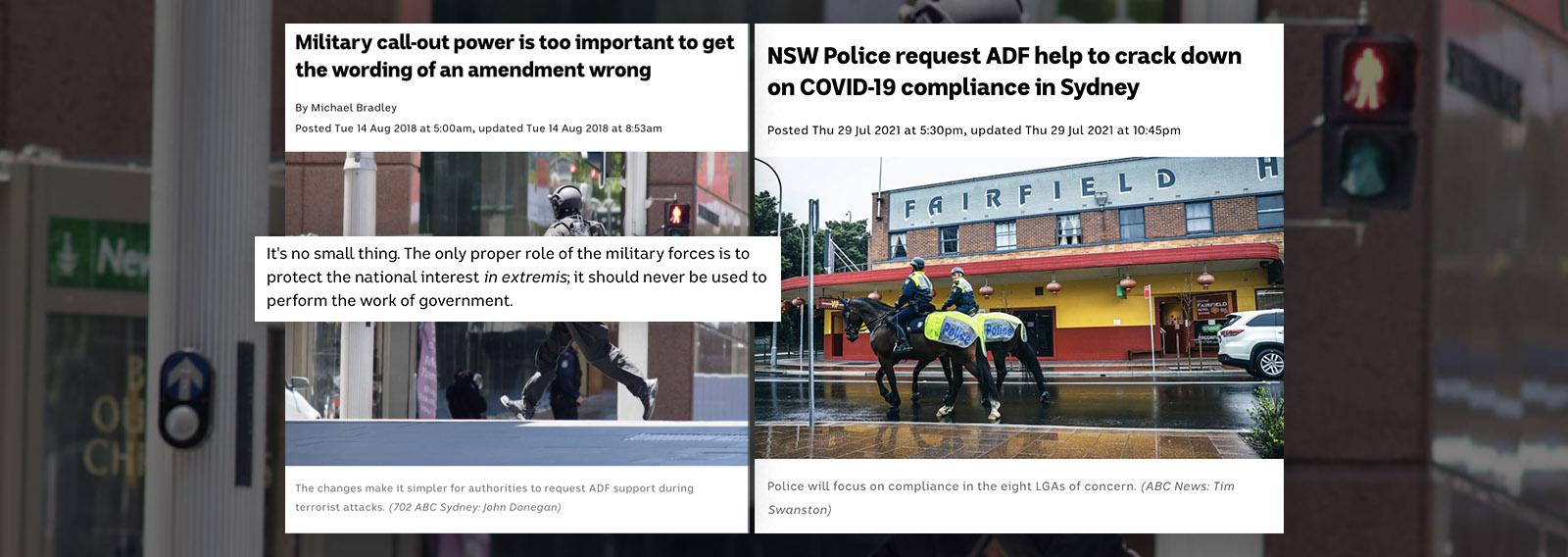The NSW Police Commissioner, on Thursday, called on hundreds of Australian Defence Force (ADF) personnel for assistance in enforcing lockdown restrictions in Sydney over the weekend.
Commissioner, Mick Fuller, asked 300 ADF military personnel to “boost the operational footprint” of the police and to assist with COVID-19 restriction compliance measures in light of an “increase in enforcement activity over the coming week.”
Minister for Police and Emergency Services David Elliot said it would be a “functional, effective and dynamic team” to help fight the pandemic.
“There is a longstanding and highly-professional relationship between the NSW Police Force and the ADF,” Elliot said.
“As I have said previously, support from the Army will add another line of defence to the NSW Government’s crackdown on COVID-19 compliance.”
While many have questioned whether military intervention is necessary, calling it heavy-handed, some are questioning the constitutionality of the move.
Augusto Zimmermann, Professor of Law and author of Fundamental Rights in the Age of COVID-19, told Caldron Pool the government’s move is a gross deviation from the military’s primary role, which is protecting the nation from external enemies, not protecting an elected government from the public.
The military contingent will be keeping citizens in ‘house orders’ (house arrest), and ensuring adherence to ‘obligatory isolation,’ Professor Zimmermann said on Sunday.
“However, the primary role of the ADF is the nation’s defence against external enemies.
“Calling the army to enforce lockdown rules sets an incredibly dangerous precedent. It is certainly not constitutional to entrust army personnel with ostentatious policing activities.
“The designation of soldiers for policing activities constitutes a gross deviation of the ADF’s primary role of protecting the nation against external enemies and not an elected government from its people, especially when their basic rights and freedoms are being grossly violated,” Prof Zimmermann added.
In 2018, the ABC appeared to agree. A piece that was then published by the ABC argued that “the only proper role of the military forces is to protect the national interest in extremis; it should never be used to perform the work of government.”
At the time, the article was written in relation to Peter Dutton wanting to expand anti-terror powers by giving the Government the ability to call out the Army for domestic purposes within Australia, such as a terrorist attack.
“Democracy is founded on separations,” the piece argued. “Church from state; legislature from executive form judiciary; and military force from domestic order.”
“The existing call out law blurs that last separation. The amended form will break it altogether.”
The piece noted that this is an old principle, and is one that’s enshrined in both the US and Australian constitutions.
“In the US, the Posse Comitatus Act was passed specifically to stop the Federal Government from using the Army to police elections in former Confederate states.
“Section 119 of our Constitution says that the Commonwealth must protect the country from invasion and, if asked by a State, ‘against domestic violence.’ That is the limit of its power, and it may well be that the call-out law is unconstitutional to the extent that it doesn’t require state requests.
“But the point is the intent: domestic policing is for the police, and the Army doesn’t get called in except as a last resort.”





















